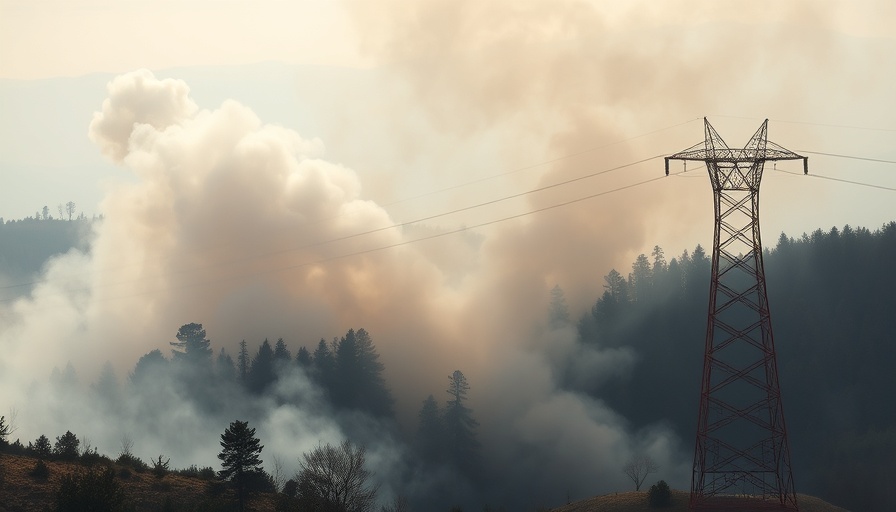
Wildfires Disrupt Marseille: A Current Crisis in Southern France
As waves of heat and dry conditions continue to ravage Southern France, the impact on daily life has become palpable. In an alarming turn of events, Marseille Airport recently closed its runway, leading to the suspension of all flights due to a wildfire threatening the region. Authorities have initiated emergency protocols as the flames approached the bustling port city, highlighting the escalating risks posed by climate change.
Understanding the Situation: How Did We Get Here?
The wildfire, which has affected approximately 350 hectares near Les Pennes-Mirabeau, has prompted local officials to issue urgent warnings for residents. The prefecture advised those living in northern Marseille to remain indoors, keeping doors and windows shut to avoid inhaling smoke that has been reported to contain toxic materials. This situation does not just disrupt travel; it raises critical questions about the vulnerability of urban areas as climate change intensifies.
Firefighting Efforts: Who is Battling the Blaze?
In response to the fire, a formidable team of 168 firefighters, along with two helicopters and 68 vehicles, have been deployed. Their ongoing battle against the blaze underscores the severity of the current fire season in France. Without immediate containment, there's potential for widespread devastation, not only to natural landscapes but also to properties and local economies.
The Human Cost of Environmental Disaster
While no casualties have been reported as of yet, the psychological and financial toll on residents and businesses can be severe in these situations. Individuals are likely to feel anxious and uncertain about their safety and the continuing viability of their homes and businesses as wildfires become more common in the region. The threat of toxic air further compounds worries about public health.
A Closer Look at Climate Change and Fire Risks
This incident at Marseille is a stark reminder of the broader implications of climate change as it exacerbates conditions leading to wildfires. The frequency and intensity of these fires are projected to rise, posing serious challenges for cities worldwide. Were we adequately prepared for such eventualities? How can we bolster our defenses against future incidents? This crisis prompts a discussion on policies surrounding urban planning, landscape management, and emergency preparedness.
Impacts on Tourism and Local Economy
Marseille, a key tourist destination, relies heavily on the inflow of visitors. The suspension of flights jeopardizes this, making it essential to consider strategies for mitigating the impact on local businesses. How can stakeholders ensure that tourism is preserved even in such crises? Collaborations with government, NGOs, and local businesses can forge paths toward resilience.
Looking Ahead: Possible Solutions and Preventative Measures
As wildfires continue to plague parts of France, there is an urgent need for cooperative measures across governments and communities. These include investing in firefighting infrastructure, implementing better forest management practices, and raising public awareness on fire safety. Furthermore, adapting policies to manage and mitigate the risks posed by climate change is not just essential but non-negotiable.
Final Thoughts: Staying Informed and Prepared
Crises like these serve as important reminders of our environmental vulnerabilities. As residents in Marseille and other affected areas stay vigilant and safe, it's imperative for all to stay informed about local emergencies and to take necessary precautions. The time to act is now.
 Add Row
Add Row  Add
Add 




 Add Row
Add Row  Add
Add 

Write A Comment